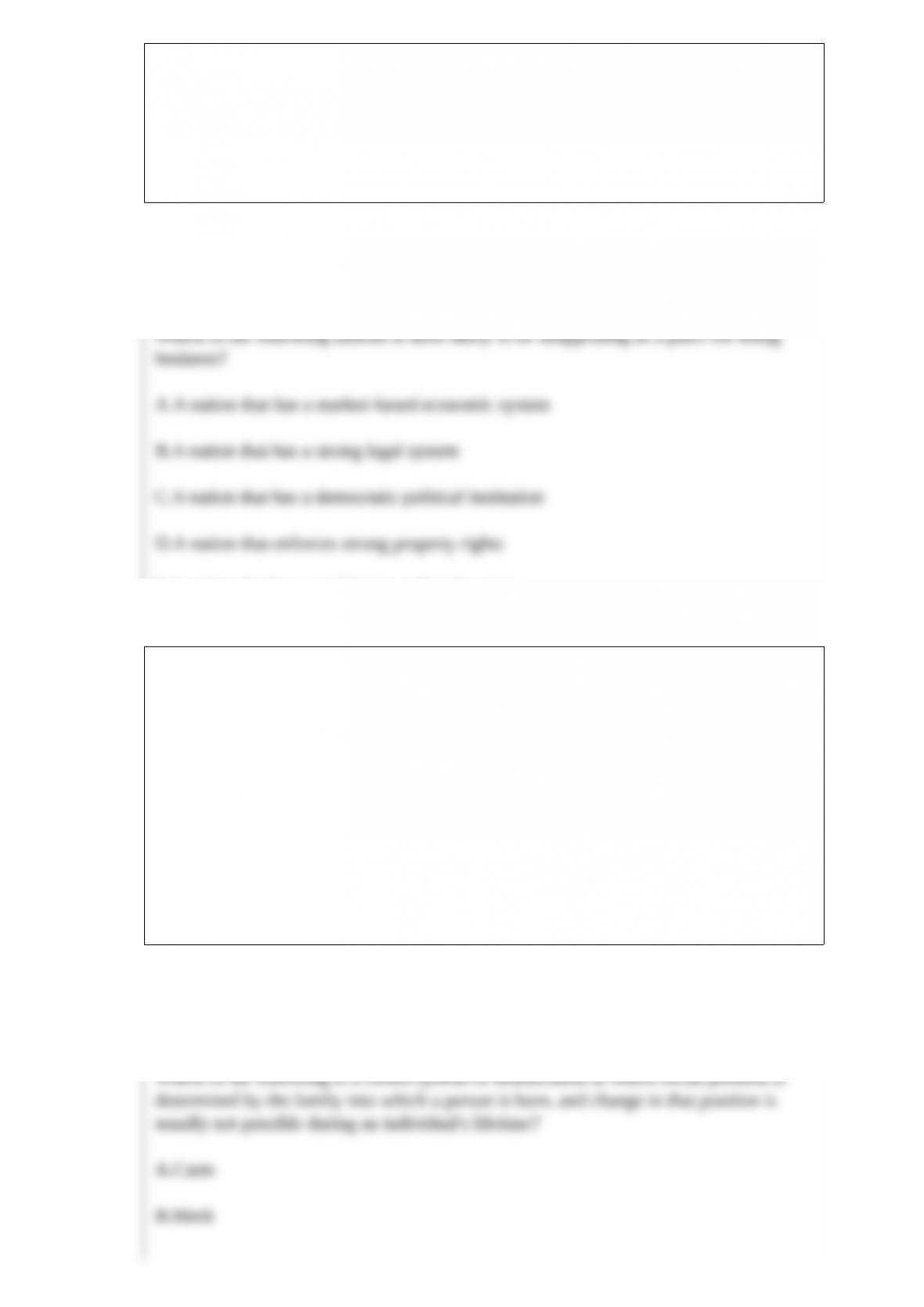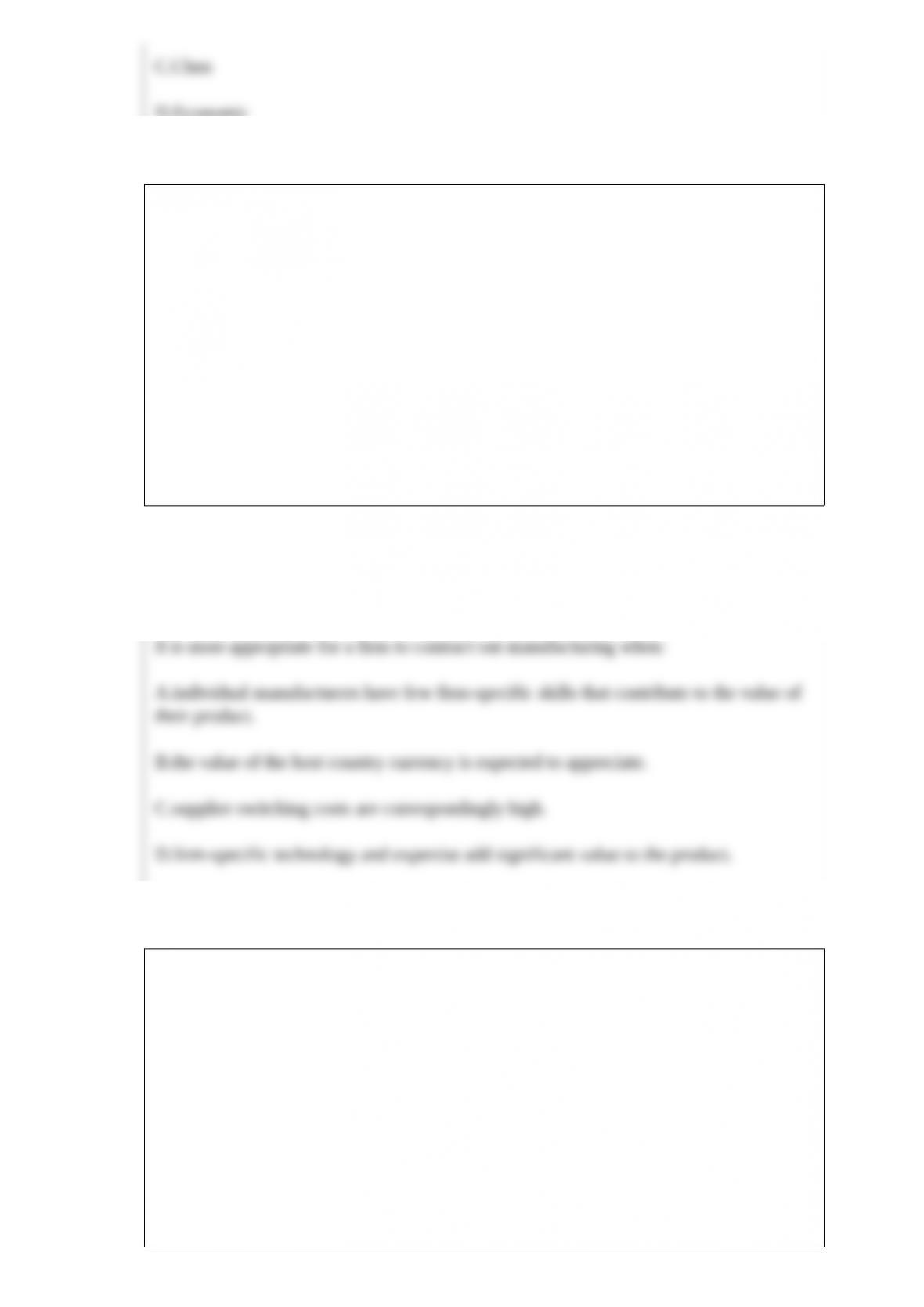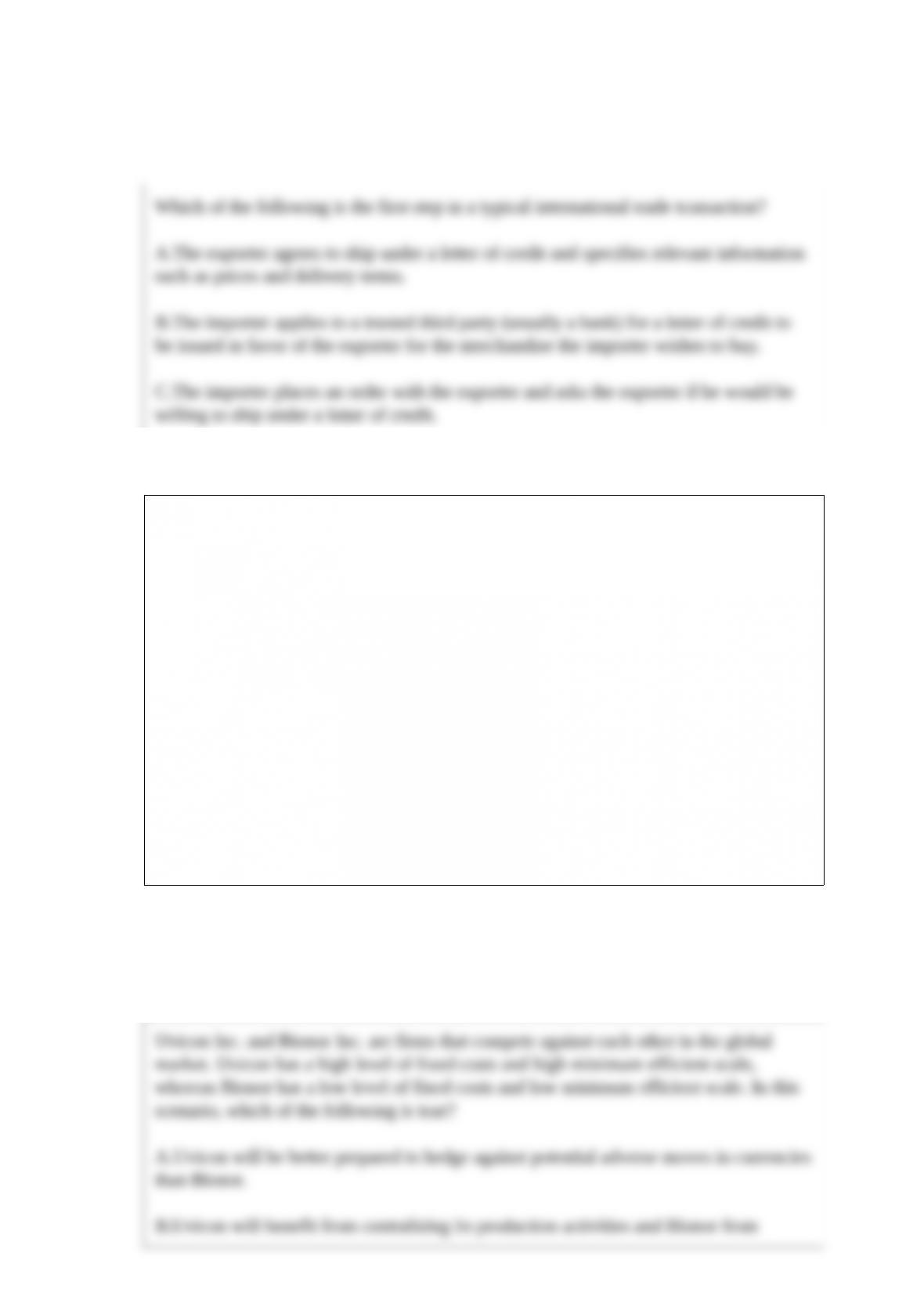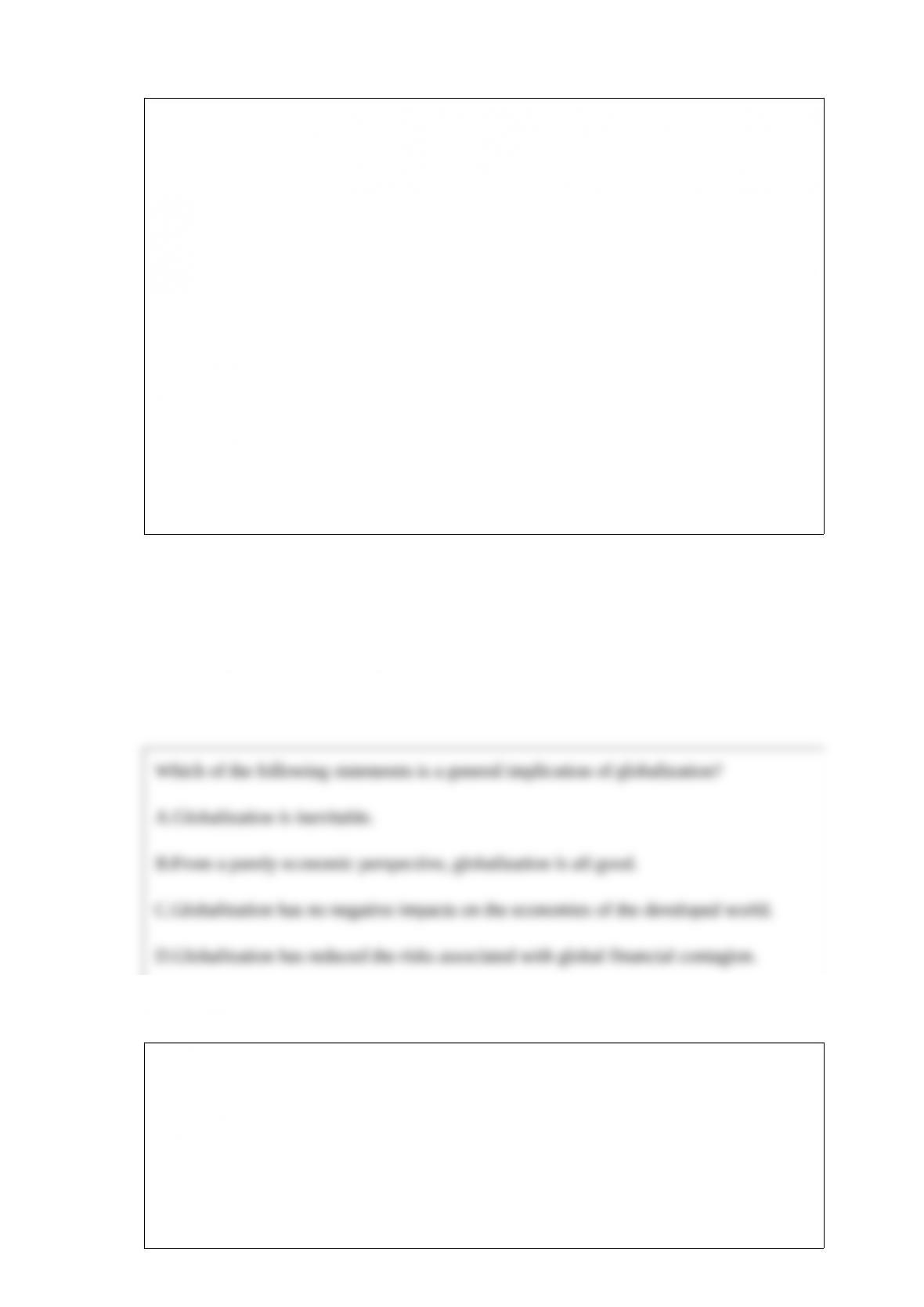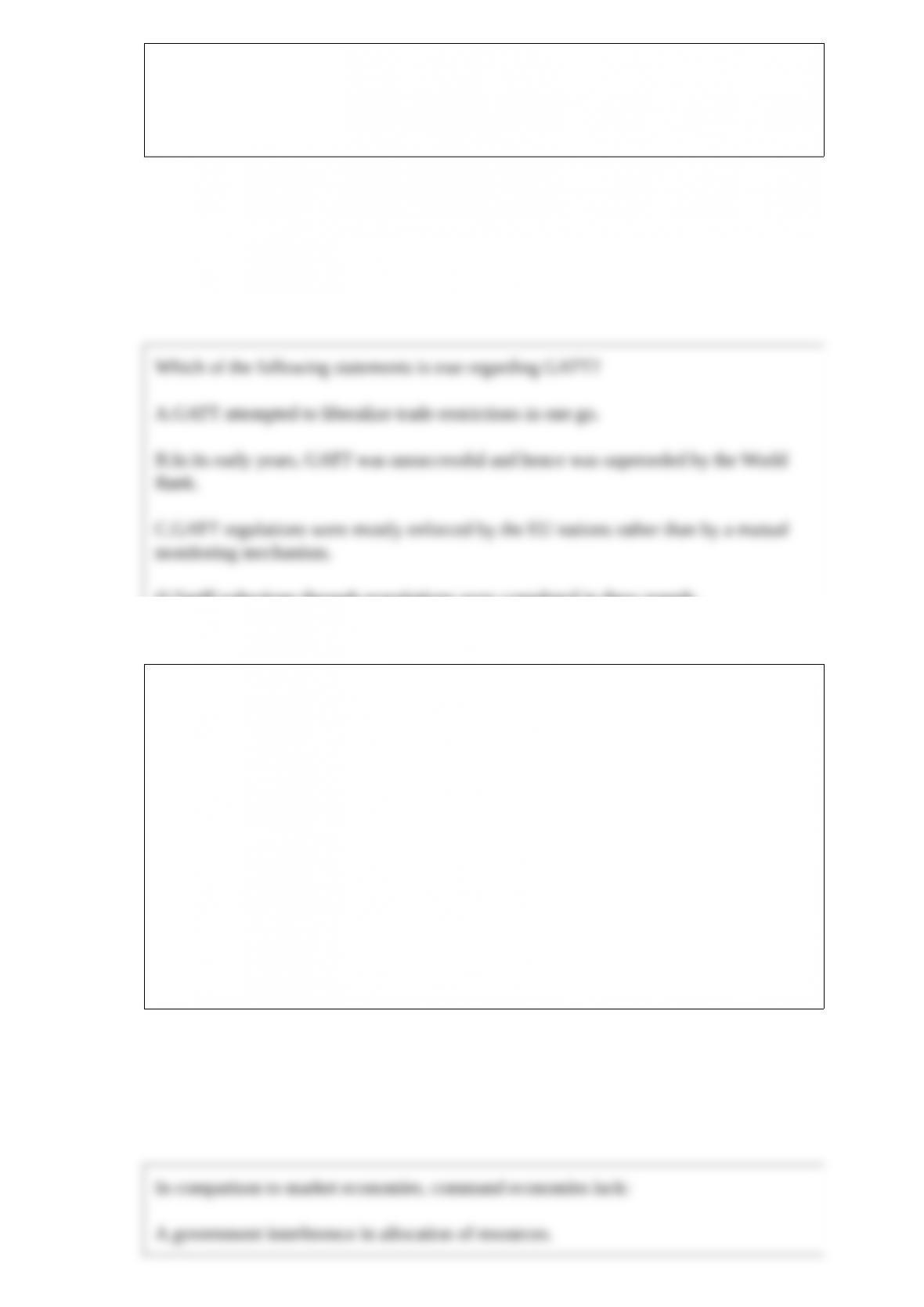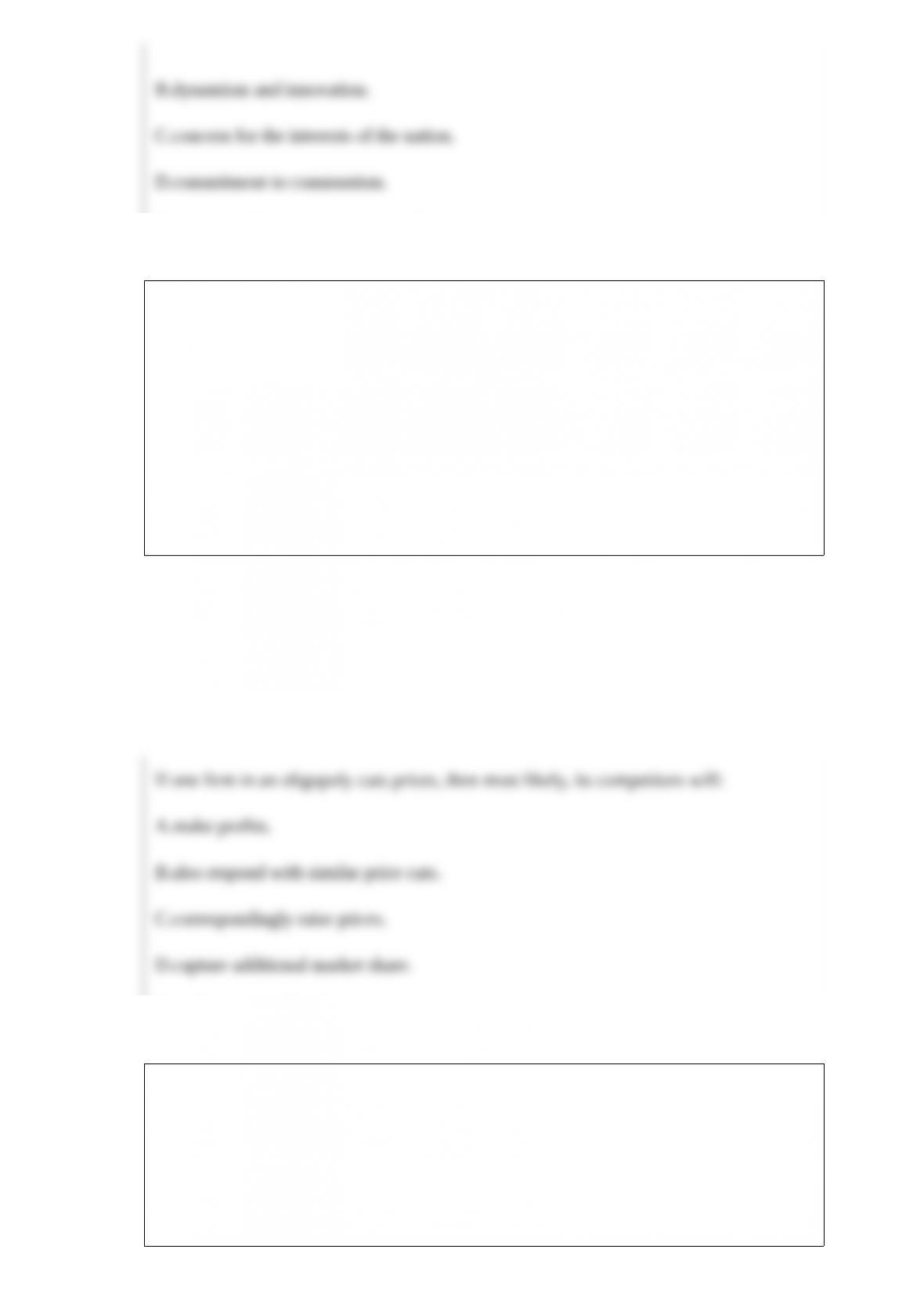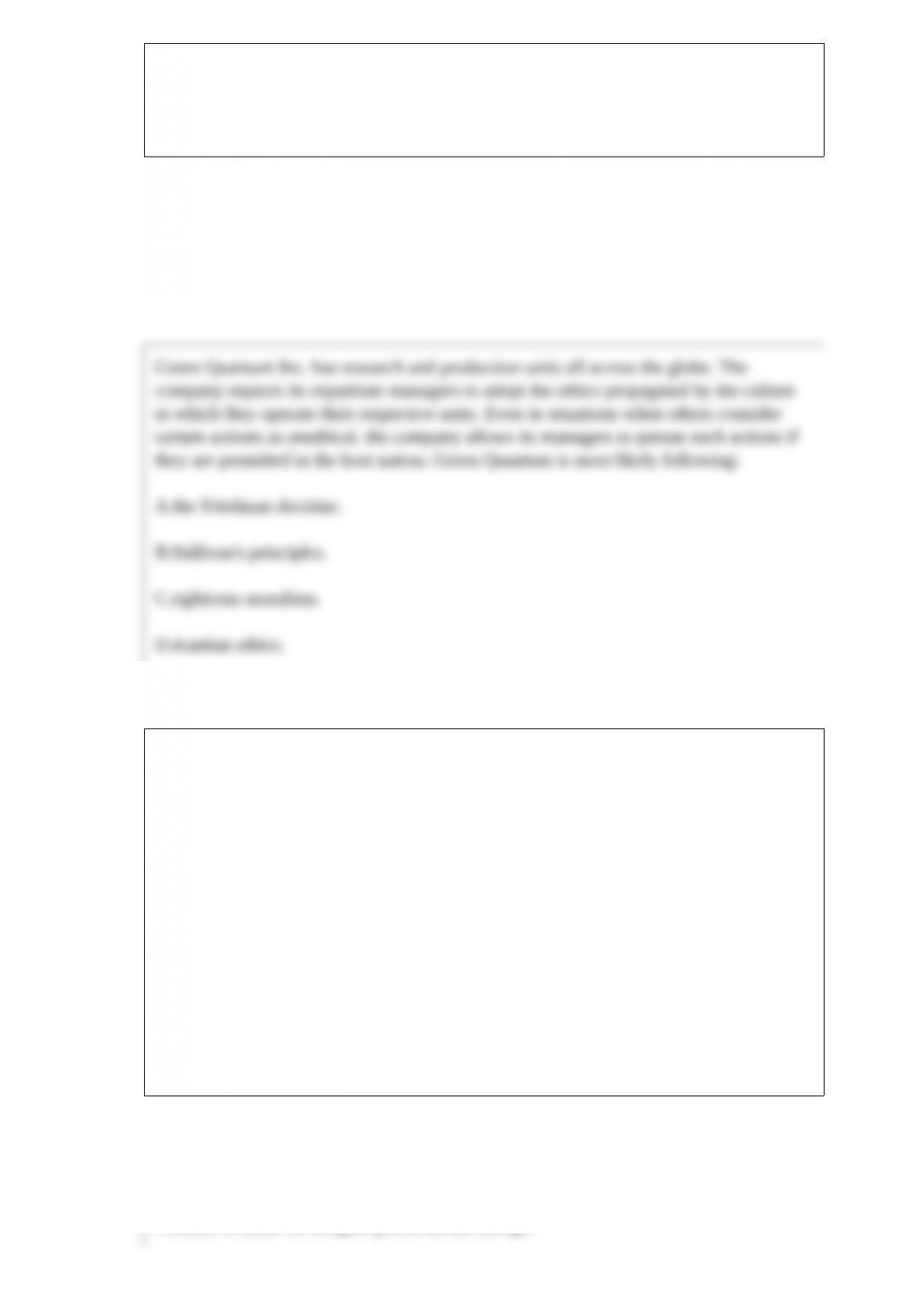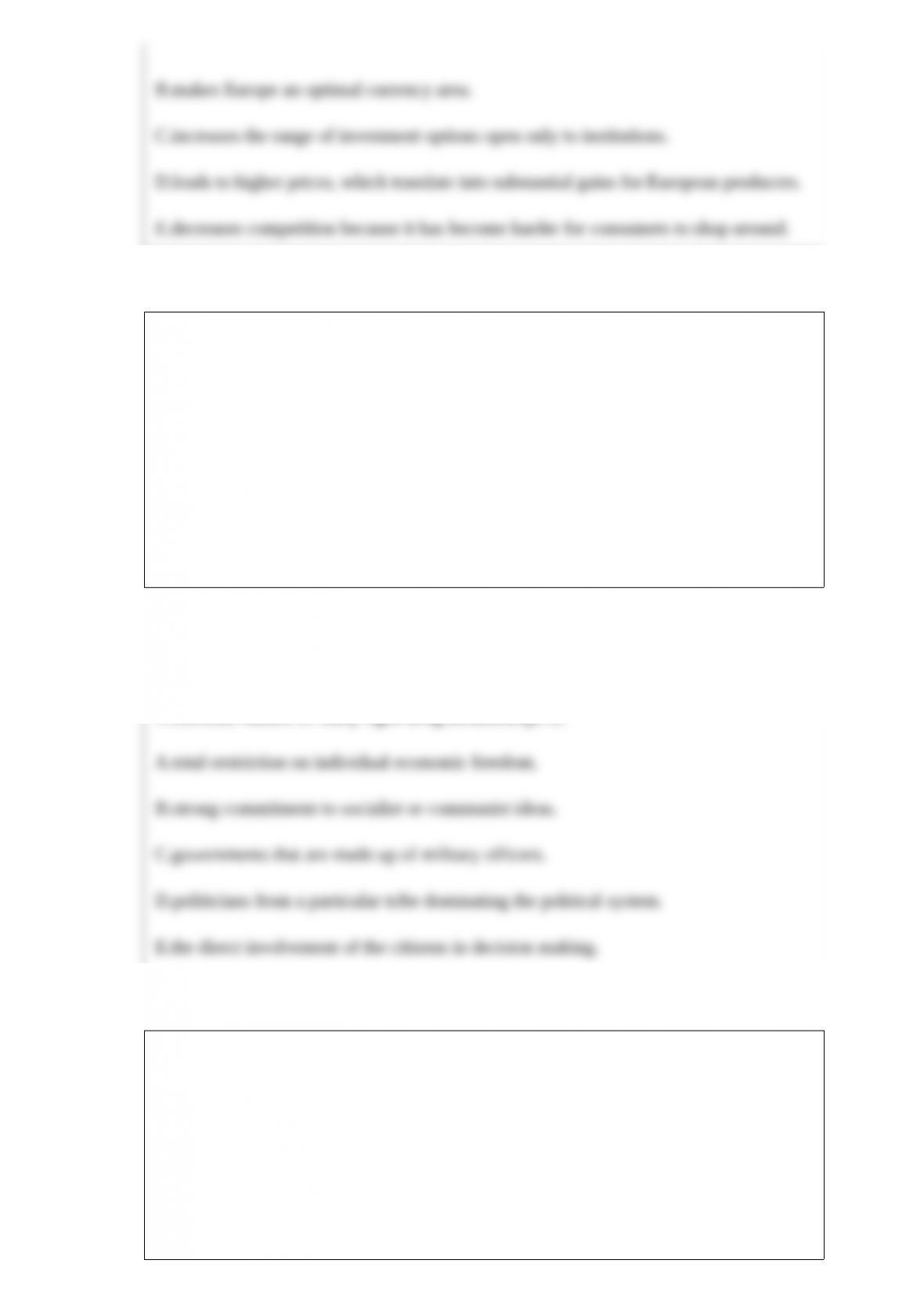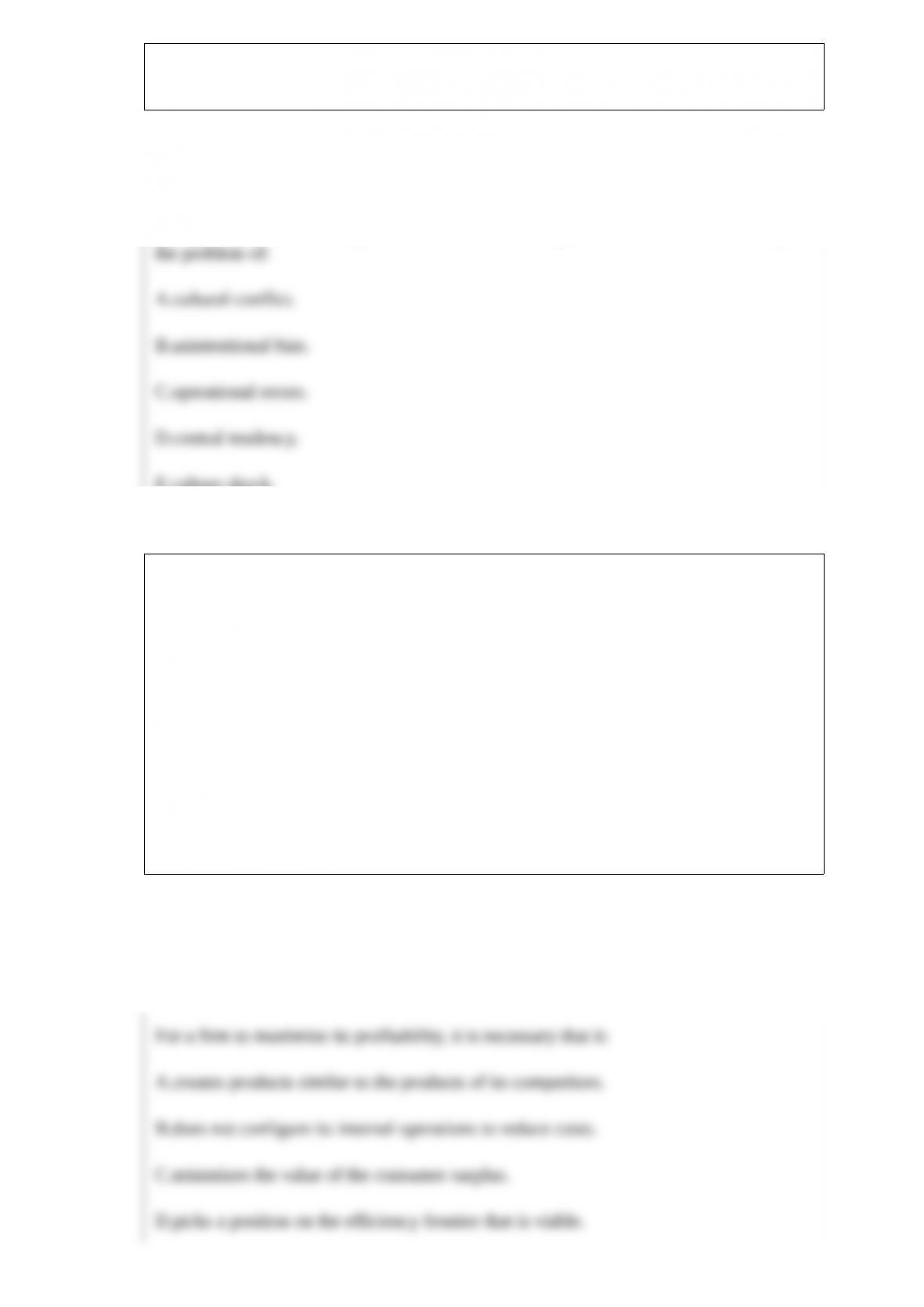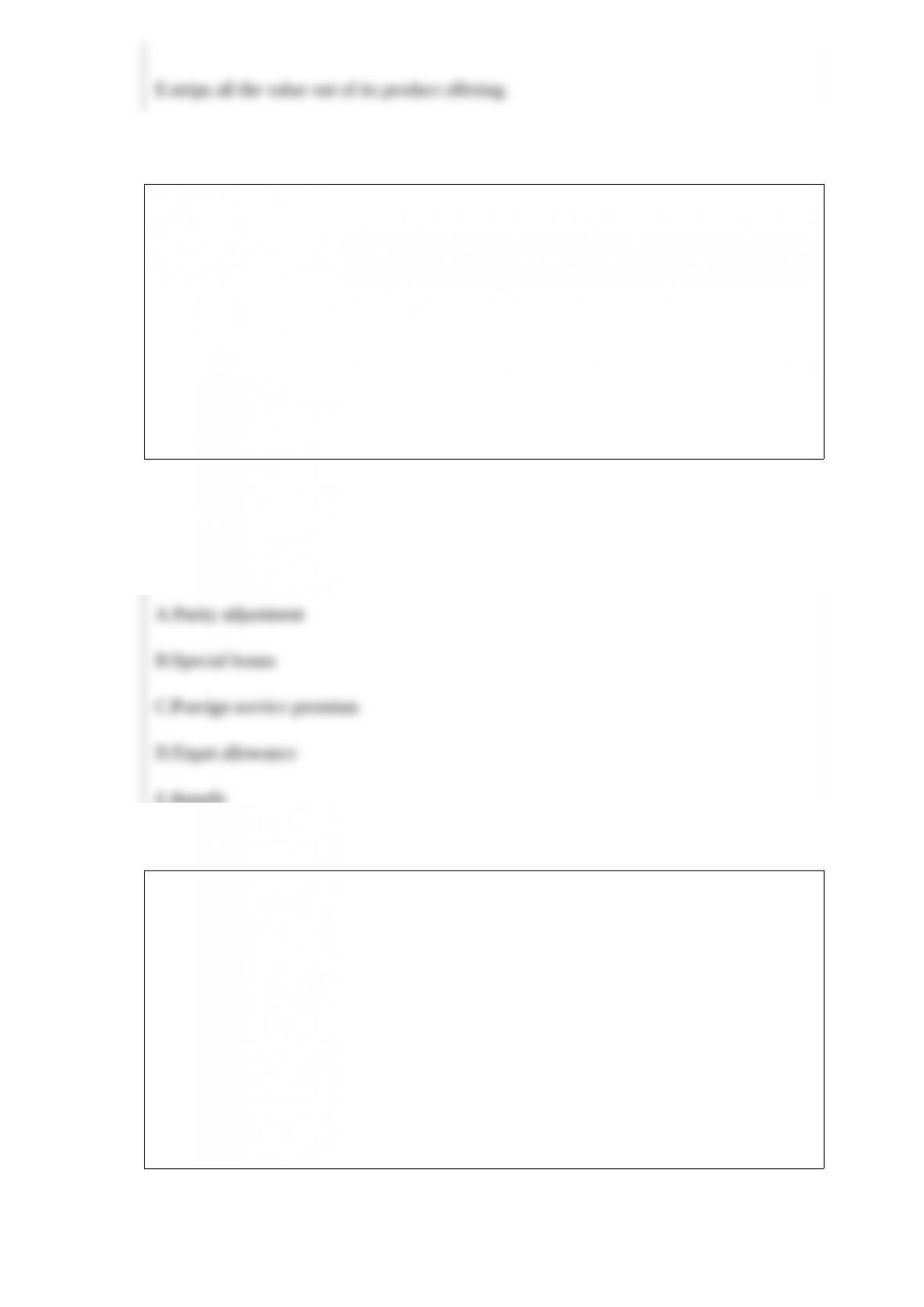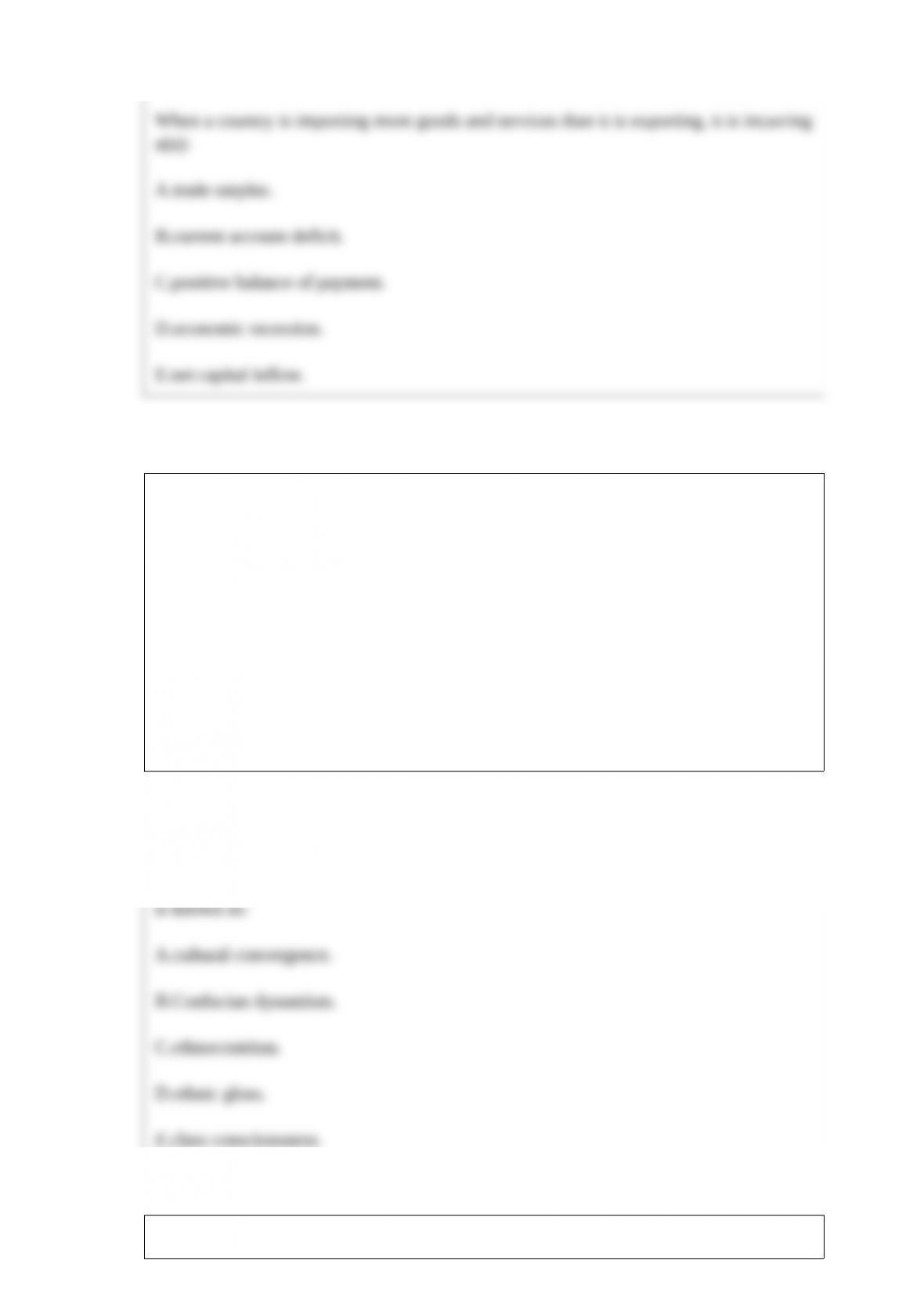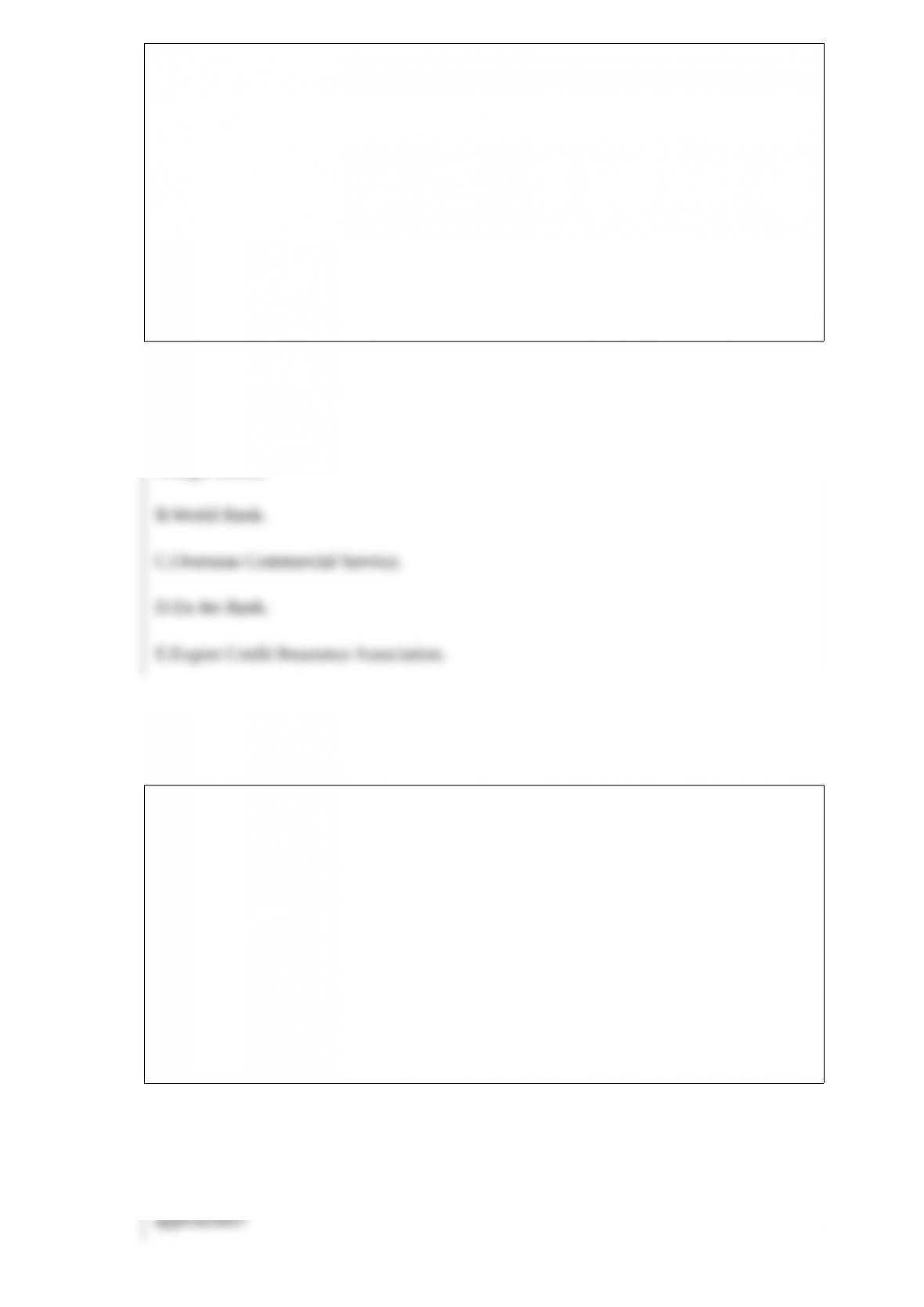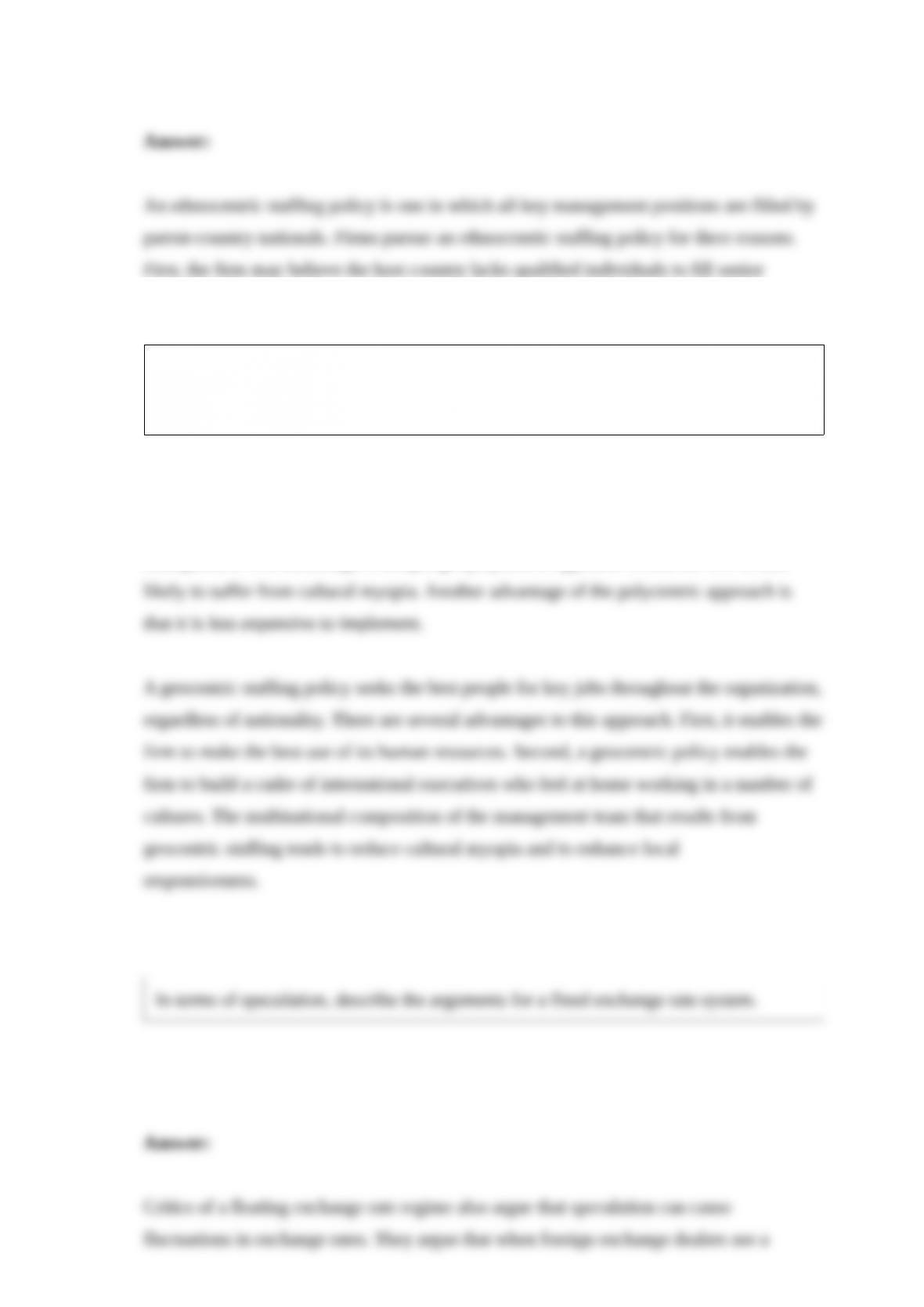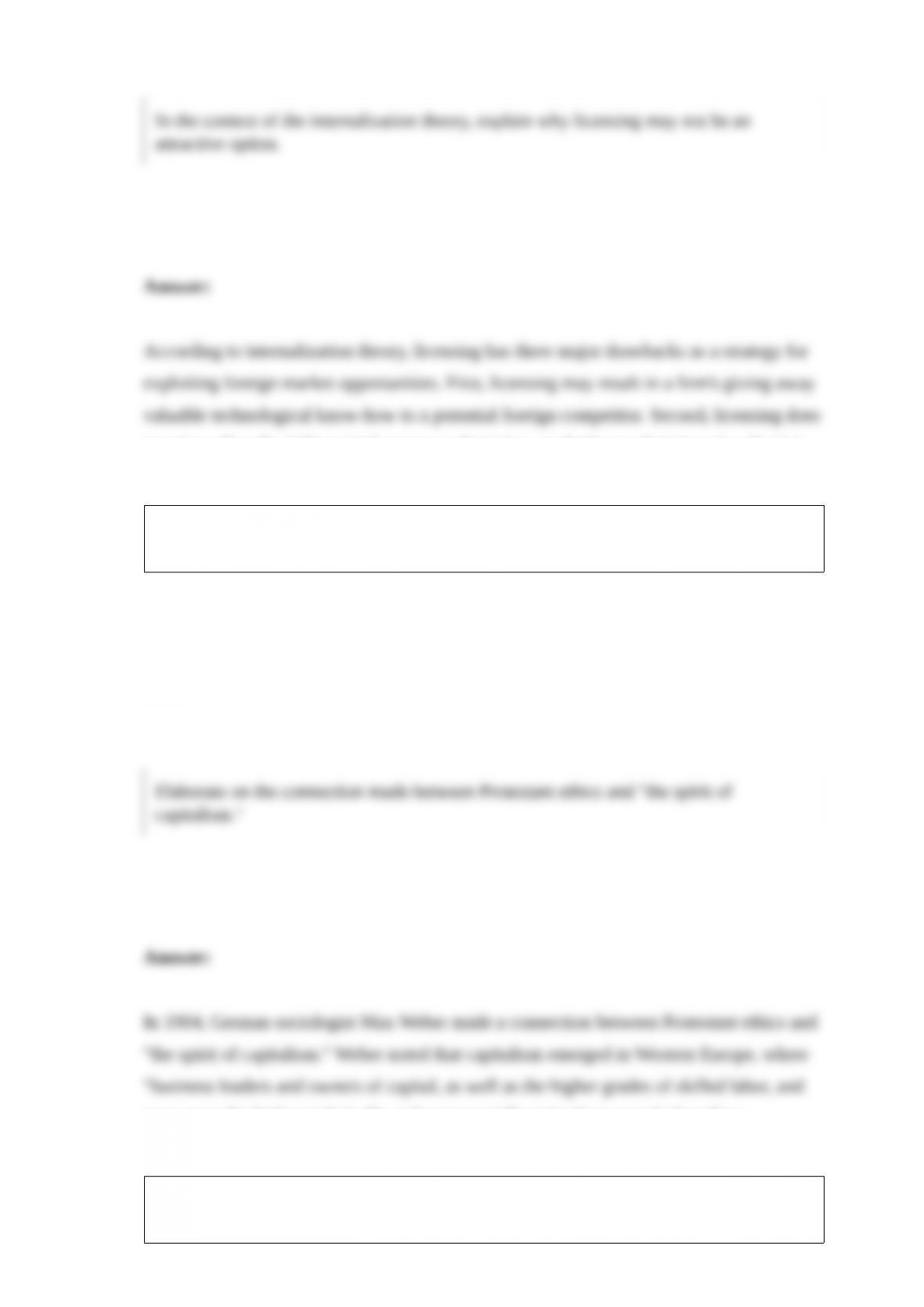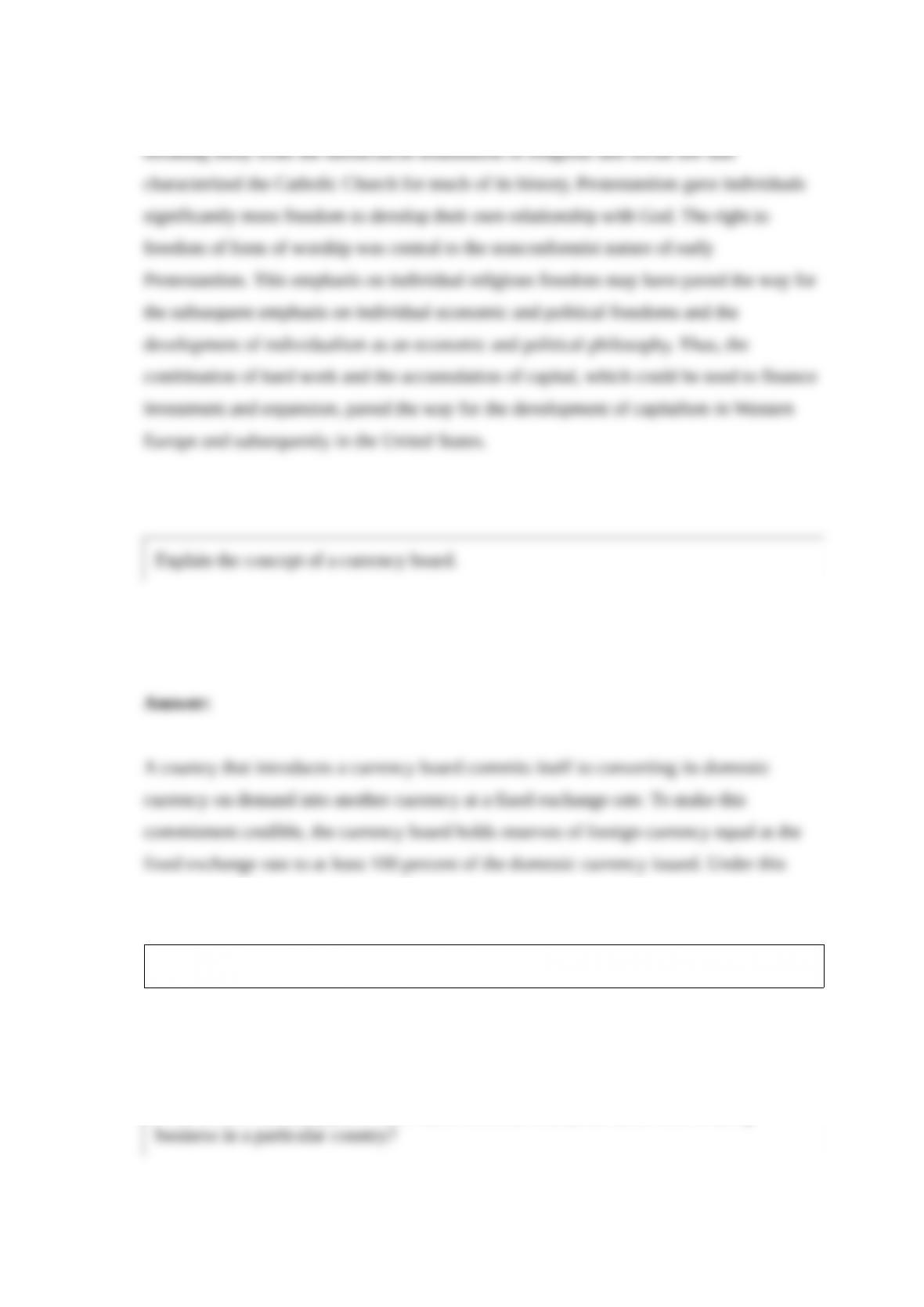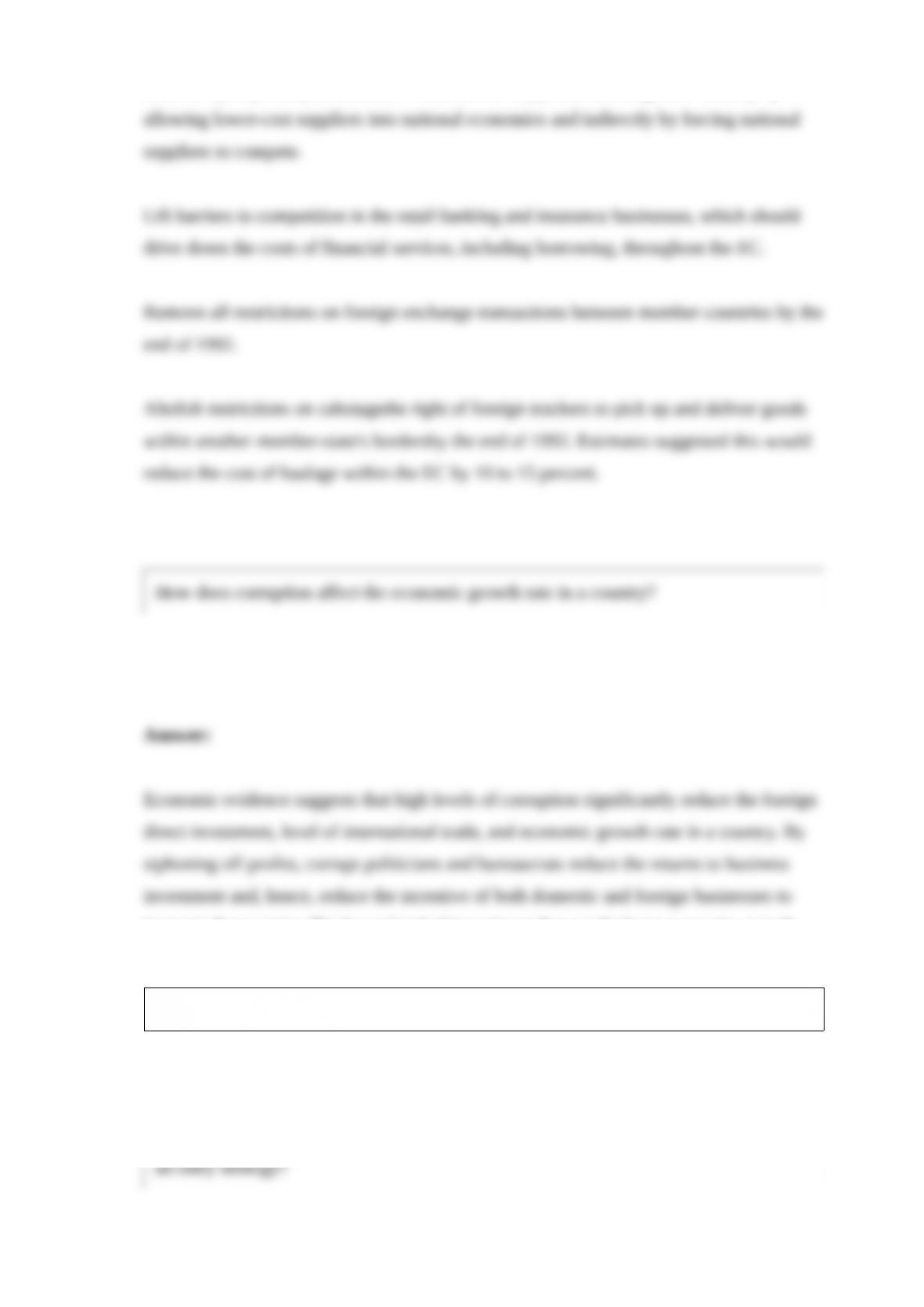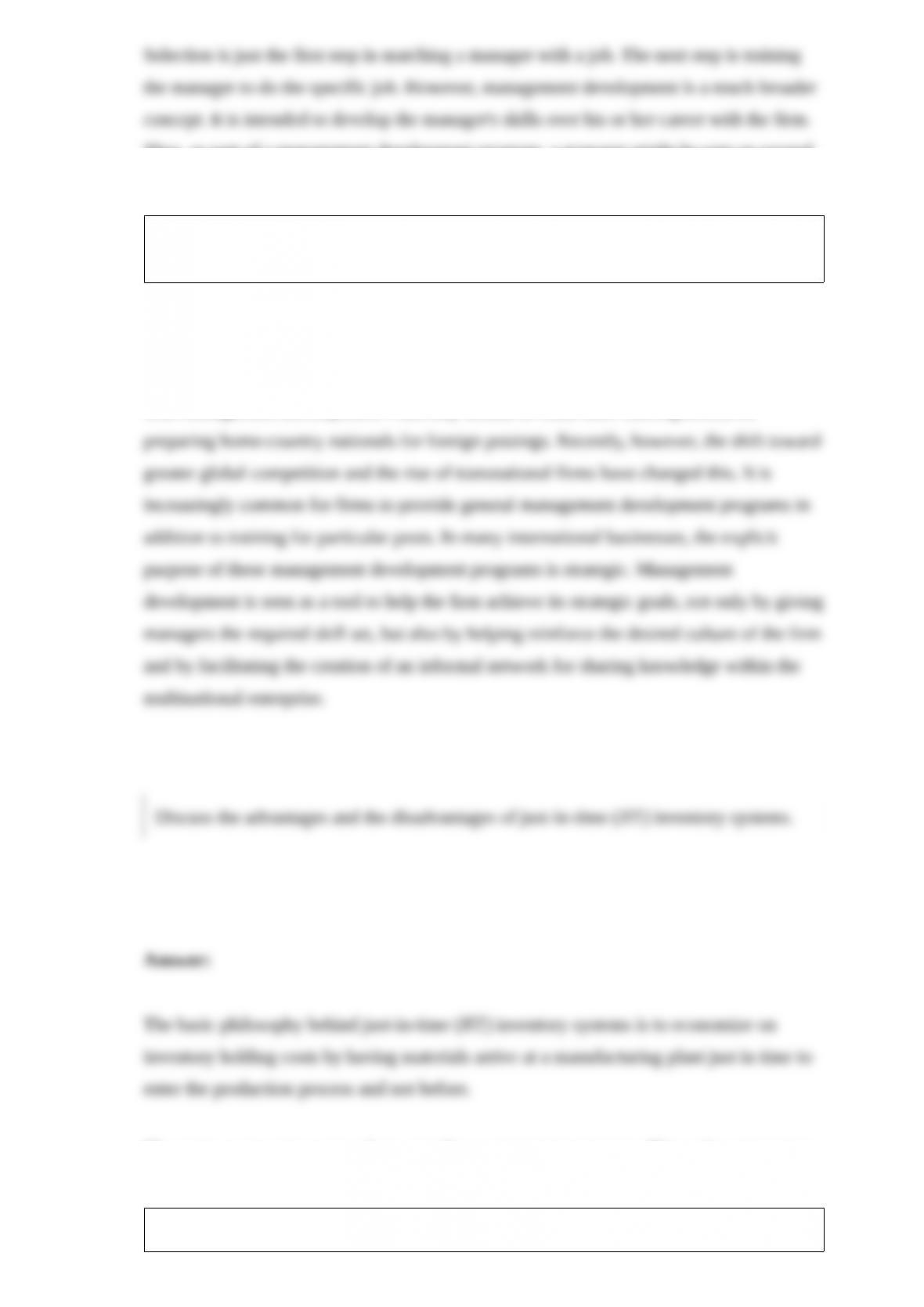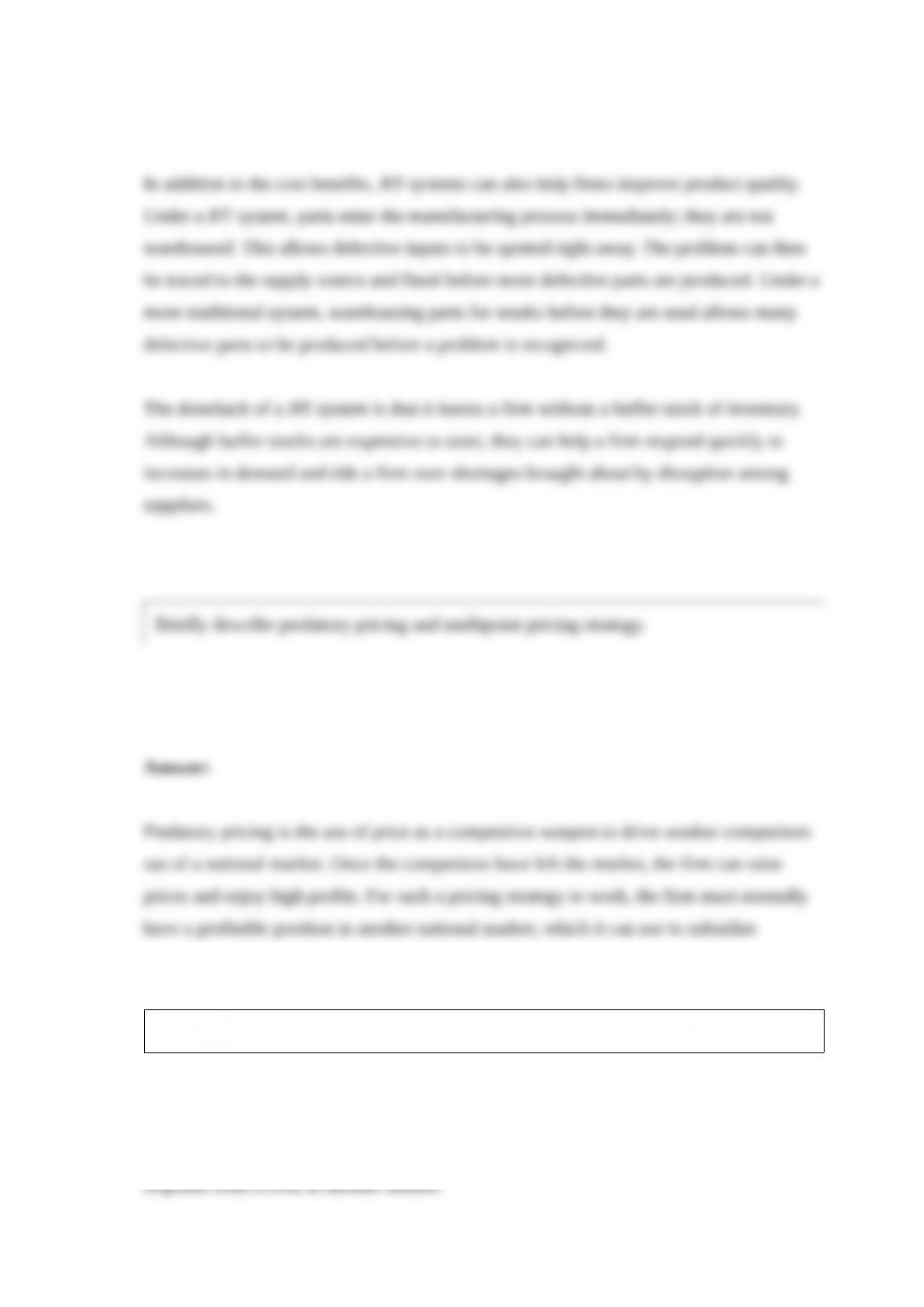Uvicon Inc. and Bionor Inc. are firms that compete against each other in the global
market. Uvicon has a high level of fixed costs and high minimum efficient scale,
whereas Bionor has a low level of fixed costs and low minimum efficient scale. In this
scenario, which of the following is true?
A.Uvicon will be better prepared to hedge against potential adverse moves in currencies
than Bionor.
B.Uvicon will benefit from centralizing its production activities and Bionor from
decentralizing.
C.Uvicon will have more bargaining power over contract manufacturers than Bionor.
D.Uvicon will be better enabled to adapt to changes in consumer demand in regional
markets than Bionor.
E.Uvicon will be better prepared to accommodate demands for local responsiveness
than Bionor.
Answer:
Which of the following statements is a general implication of globalization?
A.Globalization is inevitable.
B.From a purely economic perspective, globalization is all good.
C.Globalization has no negative impacts on the economies of the developed world.



























